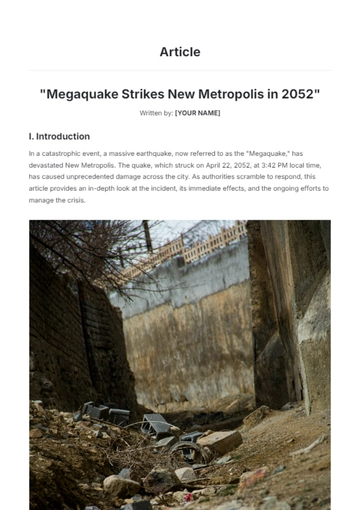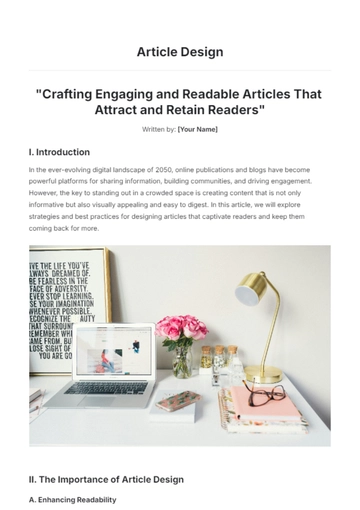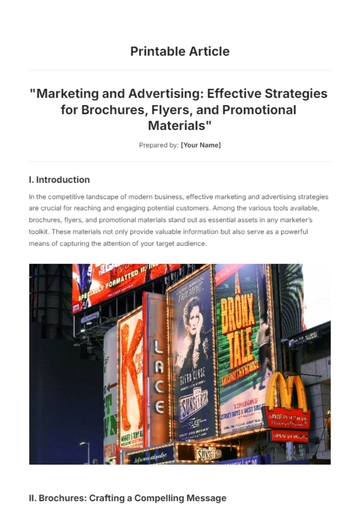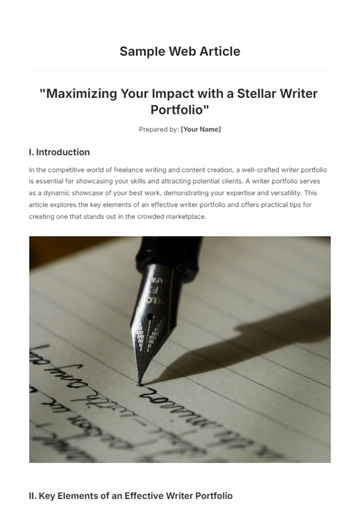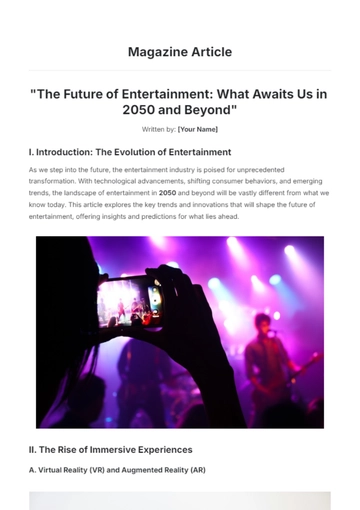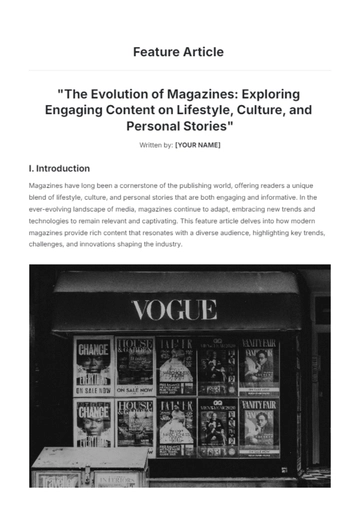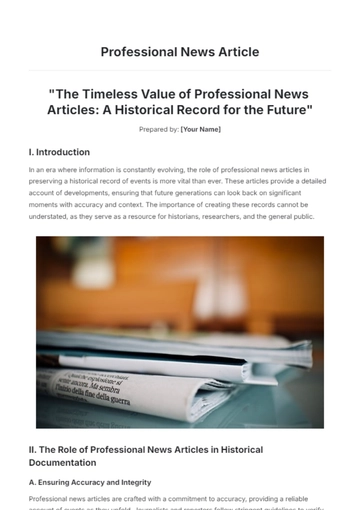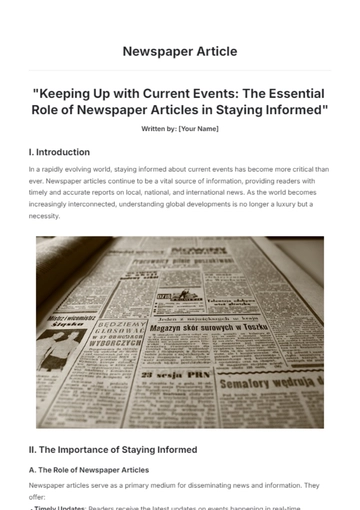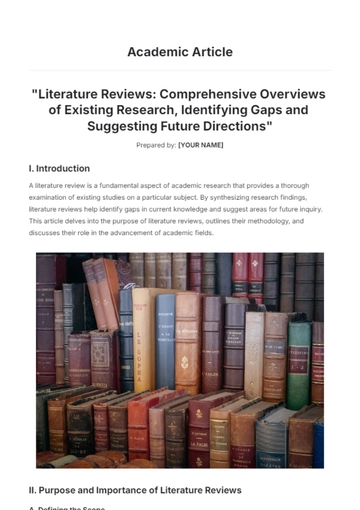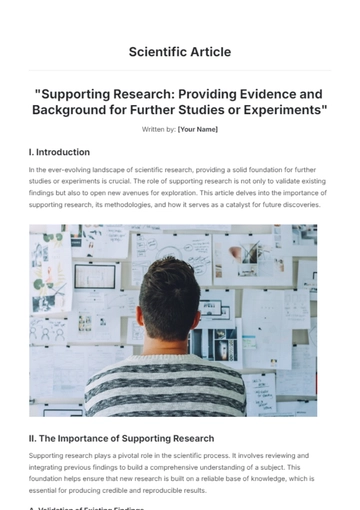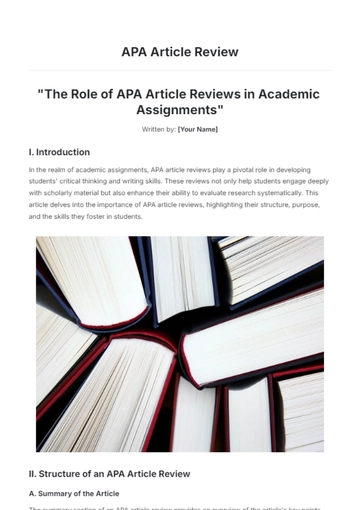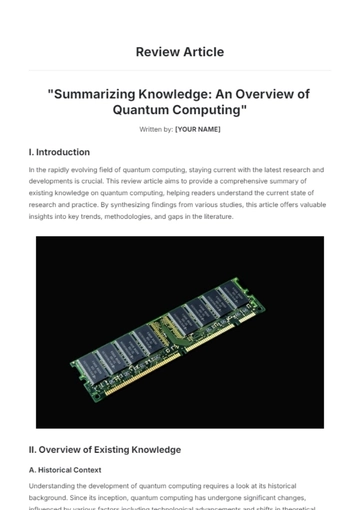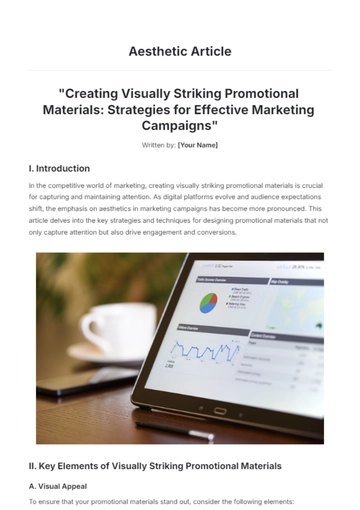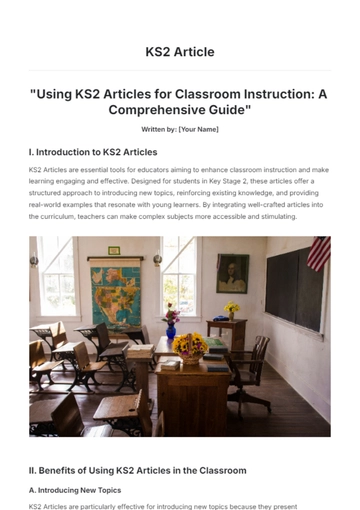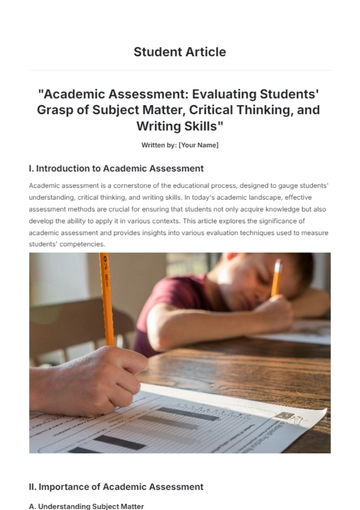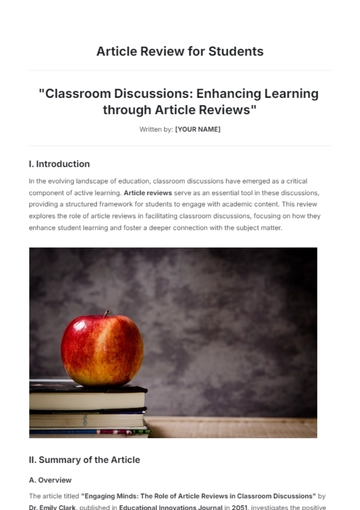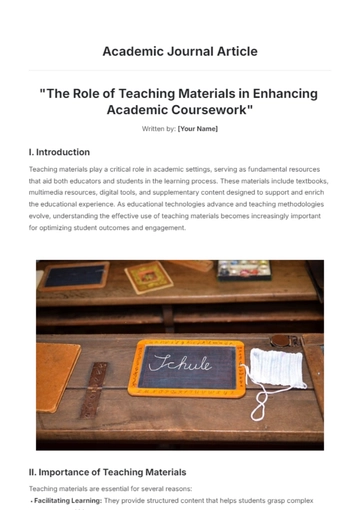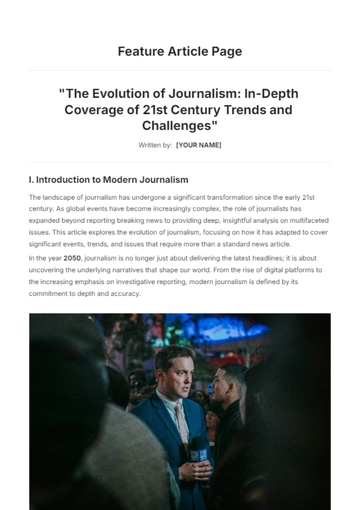Free Theoretical Journal Article
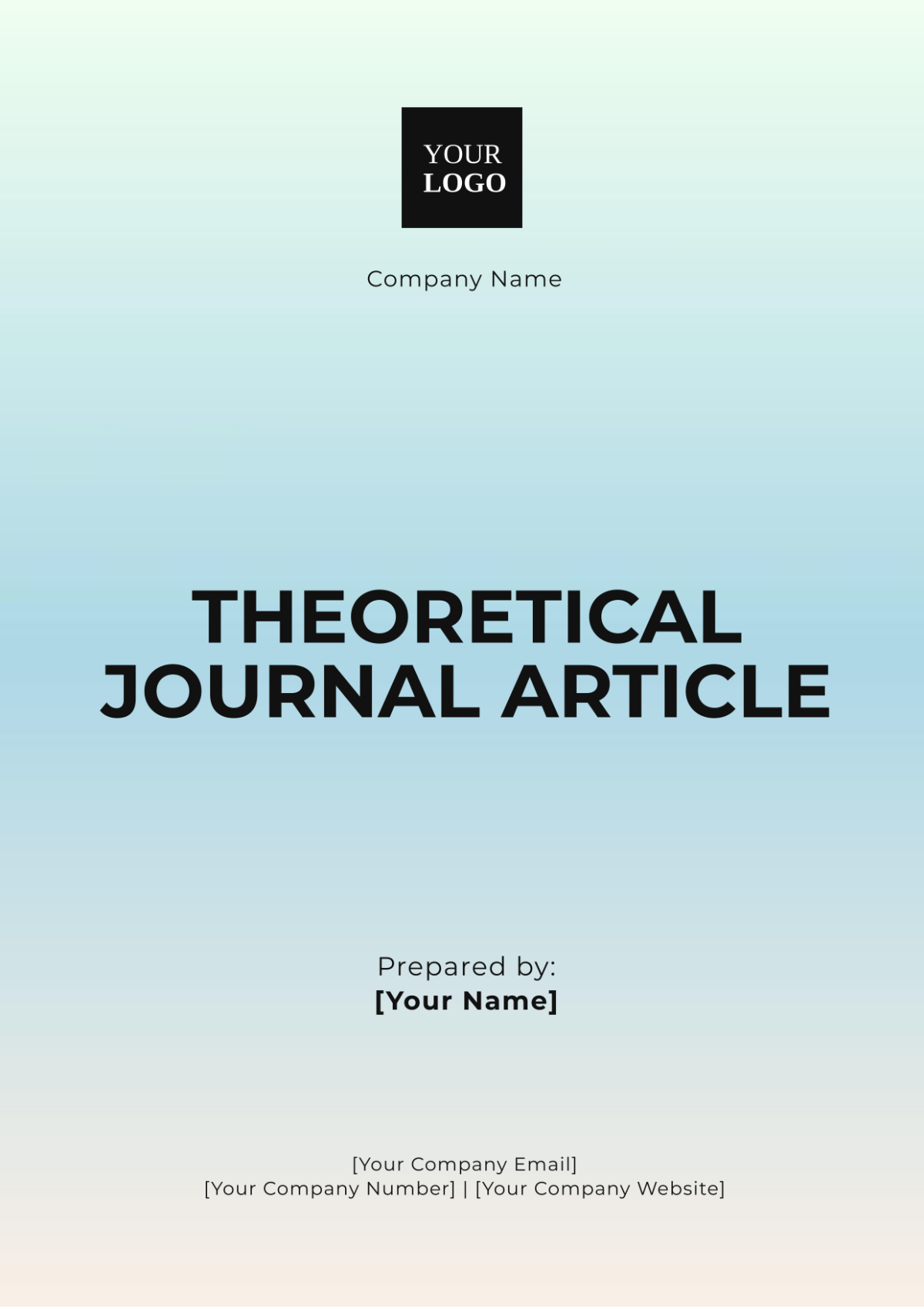
"A New Framework for Sustainable Urban Development"
Written By: [Your Name]
Publication Date: [Date]
Abstract
This article presents a novel theoretical framework for sustainable urban development, aimed at addressing the complex challenges posed by rapid urbanization and environmental sustainability. By integrating concepts from environmental science, urban planning, and socio-economic theory, this paper proposes a multi-dimensional model that advances our understanding of sustainable urban practices. The framework is designed to guide future research and inform policy-making in urban environments, promoting balanced growth and ecological stewardship.
Introduction
Urban areas are rapidly expanding, leading to increased demands on infrastructure, resources, and environmental management. Traditional approaches to urban development often prioritize economic growth over sustainability, resulting in detrimental environmental and social impacts. This paper introduces a new theoretical framework that seeks to bridge the gap between growth and sustainability, offering a comprehensive model for guiding sustainable urban development. The objectives of this framework are to provide a holistic perspective on urban sustainability, integrate diverse theoretical perspectives, and propose actionable strategies for urban planners and policymakers.
Literature Review
The study of sustainable urban development has evolved significantly, with contributions from various theoretical perspectives. Key theories in this domain include:
Ecological Modernization Theory: This theory suggests that economic development and environmental protection can be mutually reinforcing through technological innovation and policy reform.
Urban Political Economy: This perspective examines how economic and political forces shape urban environments, often highlighting issues of inequality and social justice.
Systems Theory: Systems theory applies to urban planning by considering cities as complex, interconnected systems where changes in one area can impact others.
While these theories provide valuable insights, they often operate in isolation. This paper reviews the current literature to identify gaps and opportunities for integrating these perspectives into a unified framework for sustainable urban development.
Theoretical Framework
Conceptual Model
The proposed framework, termed the Integrated Sustainable Urban Development (ISUD) Model, is built on three core dimensions:
Environmental Sustainability: This dimension focuses on minimizing ecological impact through resource efficiency, pollution reduction, and conservation efforts. It emphasizes the role of green technologies and sustainable practices in urban settings.
Economic Resilience: This dimension addresses the need for cities to maintain economic stability while pursuing sustainability. It includes strategies for sustainable economic growth, equitable resource distribution, and job creation.
Social Equity: This dimension ensures that urban development benefits all segments of society, addressing issues such as housing affordability, access to services, and community participation.
Integration and Application
The ISUD Model integrates these dimensions into a cohesive framework, using a systems approach to analyze their interdependencies. This model provides a structured method for assessing urban projects and policies, offering a comprehensive view of their potential impacts on sustainability.
Discussion
The ISUD Model offers several advantages over traditional approaches to urban development:
Holistic Perspective: By incorporating environmental, economic, and social dimensions, the framework provides a more complete understanding of urban sustainability challenges.
Flexibility: The model can be adapted to different urban contexts and scales, making it applicable to a wide range of scenarios.
Guidance for Policymakers: The framework offers actionable insights for designing policies and interventions that balance growth with sustainability.
However, there are limitations to consider:
Complexity: The model's multi-dimensional nature can make it challenging to implement and measure.
Data Requirements: Effective application of the framework requires extensive data and analysis, which may not be available in all contexts.
Conclusion
The Integrated Sustainable Urban Development (ISUD) Model represents a significant advancement in theoretical approaches to urban sustainability. By bridging gaps between existing theories and offering a unified framework, this model provides a valuable tool for researchers, urban planners, and policymakers. Future research should focus on refining the model, testing its applicability in various urban contexts, and exploring its potential for guiding sustainable development practices.
References
Smith, J., & Johnson, L. (2051). Ecological Modernization and Urban Sustainability. Urban Studies Journal, 59(3), 421-438.
Williams, R. (2052). The Political Economy of Urban Development: Insights and Implications. International Journal of Urban and Regional Research, 47(2), 587-605.
- 100% Customizable, free editor
- Access 1 Million+ Templates, photo’s & graphics
- Download or share as a template
- Click and replace photos, graphics, text, backgrounds
- Resize, crop, AI write & more
- Access advanced editor
The Theoretical Journal Article Template from Template.net is a fully editable and customizable tool designed for researchers developing theoretical frameworks. This template offers a professional format that can be easily tailored to meet the specific guidelines of any journal. With its organized structure and adaptable features, it helps streamline the writing process while ensuring your theoretical concepts are clearly and effectively communicated for publication.
